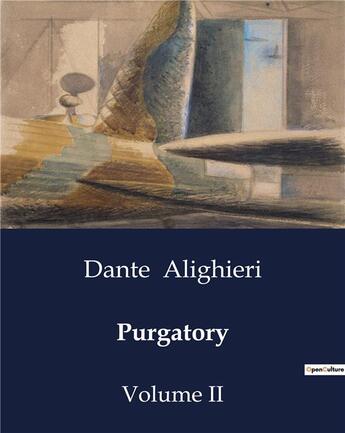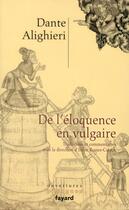-
Date de parution : 05/03/2024
-
Editeur :
Culturea
-
EAN : 9791041987993
-
Série :
(-)
-
Support :
Papier
Résumé:
"Purgatory: The Vision of Hell, Purgatory, and Paradise" by Dante Alighieri is an awe-inspiring epic that serves as an affirmative testament to the enduring power of medieval Italian literature. This masterpiece, part of Dante's renowned "Divine Comedy," is likely one of the most influential and... Voir plus
"Purgatory: The Vision of Hell, Purgatory, and Paradise" by Dante Alighieri is an awe-inspiring epic that serves as an affirmative testament to the enduring power of medieval Italian literature. This masterpiece, part of Dante's renowned "Divine Comedy," is likely one of the most influential and celebrated works in the history of Western literature.
In this epic poem, Dante takes readers on a journey through the afterlife, exploring the realms of Hell, Purgatory, and Paradise. "Purgatory," the second part of the trilogy, unfolds as a vivid and allegorical vision of the soul's purification before ascending to Paradise. Dante's exquisite use of language, profound symbolism, and theological insights affirm his mastery in crafting an intricate narrative that delves into the complexities of human morality, redemption, and divine justice.
The title, "Purgatory," suggests a thematic focus on the soul's journey towards spiritual purification and reconciliation. Through a series of encounters with penitent souls and allegorical representations of virtues and vices, Dante weaves a compelling tapestry that reflects the moral and ethical dilemmas faced by humanity.
Dante's poetic brilliance shines through in his ability to merge theological concepts with poetic imagination. The terza rima, a unique rhyme scheme employed by Dante, likely adds to the musicality and rhythmic flow of the verses, enhancing the overall aesthetic experience for the reader.
In summary, "Purgatory: The Vision of Hell, Purgatory, and Paradise" by Dante Alighieri is an affirmative and timeless exploration of the human condition, morality, and the quest for spiritual enlightenment. This epic work continues to captivate readers, serving as a profound reflection on the complexities of the soul's journey through the realms of purgation and redemption.
Donner votre avis















